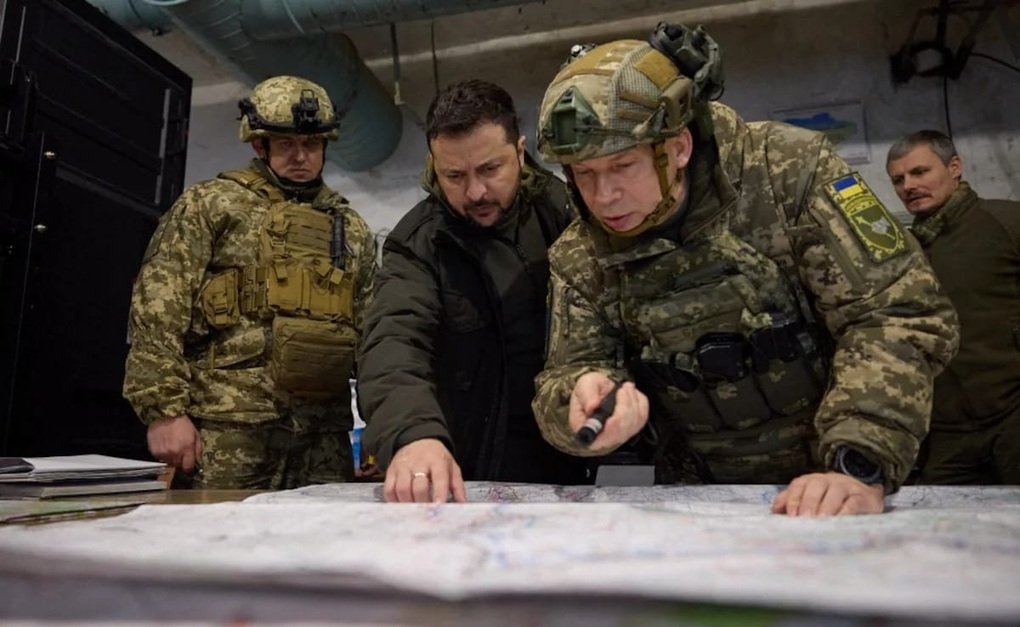(Dan Tri) – `Recent weeks have proven to many people that the Russian war machine has weaknesses that we can reach with our weapons,` Mr. Zelensky said.
President Zelensky visited the front line and received a report on the combat situation from Ukrainian Army Commander Syrsky (now Commander-in-Chief) on November 30, 2023 (Photo: Reuters)
Ukrainska Pravda reported that in a speech on the evening of March 16, President Vloodymyr Zelensky said that after a conversation with the Commander-in-Chief of the Armed Forces of Ukraine, Alexander Syrsky, he felt that the armed forces were becoming
The President said: `Today we discussed with Commander-in-Chief Syrsky. We discussed in detail the operational situation: our existing capabilities, existing threats. There is a feeling that
Mr. Zelensky also named the fronts where the fiercest fighting is taking place.
In addition, the Leader said that recent effective attacks by drones on targets in the Russian Federation demonstrate Ukraine’s long-range capabilities and expose the enemy’s weaknesses.
Kiev forces have attacked multiple oil refineries in Russia this week, reaching targets in the provinces of Samara, Ryazan, Kaluga, Nizhny Novgorod and Leningrad.
`Recent weeks have demonstrated to many that the Russian war machine has weaknesses that we can reach with our weapons,` he said.
Mr. Zelensky has long said that improving Ukraine’s long-range strike capabilities is important.
While Kiev continues to lobby its Western allies for long-range missile systems, including the German-made Taurus cruise missile and the American ATACMS, Ukraine is also developing its own long-range weapons.
Ukraine’s Beaver attack drone can fly up to 800km, and is believed to have attacked many important targets, including Russian missile storage facilities.
Mr. Zelensky thanked the domestic military and defense industrial complex for their achievements.
`Our drones have real capabilities, demonstrating Ukraine’s long-range capabilities. We will now always have strike forces in the sky,` he said.
Bloomberg reported that the facilities attacked by drones in recent days account for about 12% of Russia’s oil processing capacity.
